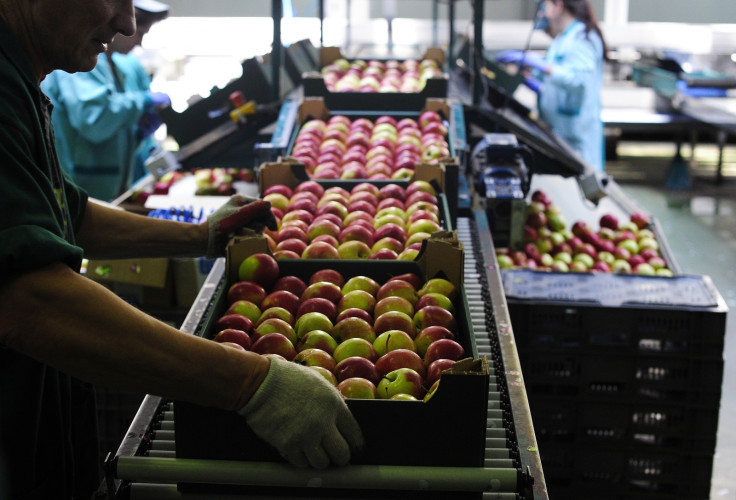EU Steps Up Emergency Farmers' Aid as Sanctions Stay in Place

European Union ambassadors have decided to maintain the sanctions regime over Russia, officials in Brussels told Reuters.
Following a meeting called to discuss the ceasefire in East Ukraine, officials said: "We are keeping the status quo," with another adding: "Nobody even talked about the possibility [of lifting sanctions], given the situation on the ground."
An EU spokeswoman spoke of "encouraging developments" since the ceasefire was implemented on 5 September, but until a permanent peace deal is in place, sanctions on Russian officials and industry will remain.
German Chancellor Angela Merkel had earlier hinted that sanctions were a long way from being removed, saying: "We will do our best that a reasonable situation can arise out of this ceasefire in Ukraine. This is all but guaranteed right now. As a result, it's currently not an option to lift existing sanctions. Instead it's necessary to keep up the pressure to achieve a reasonable political process."
As the mutual sanctions begin to bite, policymakers on both the EU and Russian sides are looking at ways of supporting those areas of the economy most affected.
The EU released a new emergency aid package totalling €165m (£128m, $208m) on Tuesday 30 September, to be distributed among producers of fruit and vegetables who have had their profits hit as a result of a Russian ban on the import of fresh food from Europe.
The aid will mainly support producers of four food groups: apples and pears, citrus fruit, vegetables and other fruit (kiwi, plums, etc). It will come in the form of compensation in return for farmers delivering their products to food banks and charities free of charge.
Roger Waite, European Commission spokesperson, said: "This is aimed at reducing the surplus of these products and preventing price drops in Europe. These are the most urgent products that need to be helped."
The funding comes on top of a previous package of €125m released in August and is designed to prop up fruit and vegetable prices, which have fallen sharply since Russian sanctions kicked in.
Meanwhile, reports emanating from Russia suggest that the country's central bank is considering introducing capital controls to stem the outbound flow of money.
A Bloomberg article quotes "two officials with direct knowledge of the discussions" as saying that the measures would be preventative and "only used if net outflows rise significantly", but no timeline is in place.
The Russian Ministry of the Economy estimated that $100bn has left Russia this year, with high-earners keen to store their capital in less volatile and vulnerable environments.
© Copyright IBTimes 2025. All rights reserved.






















